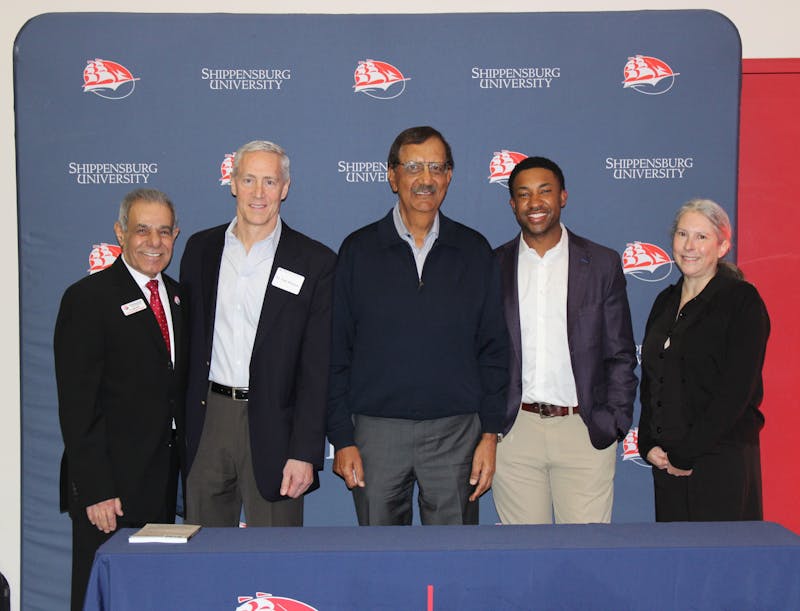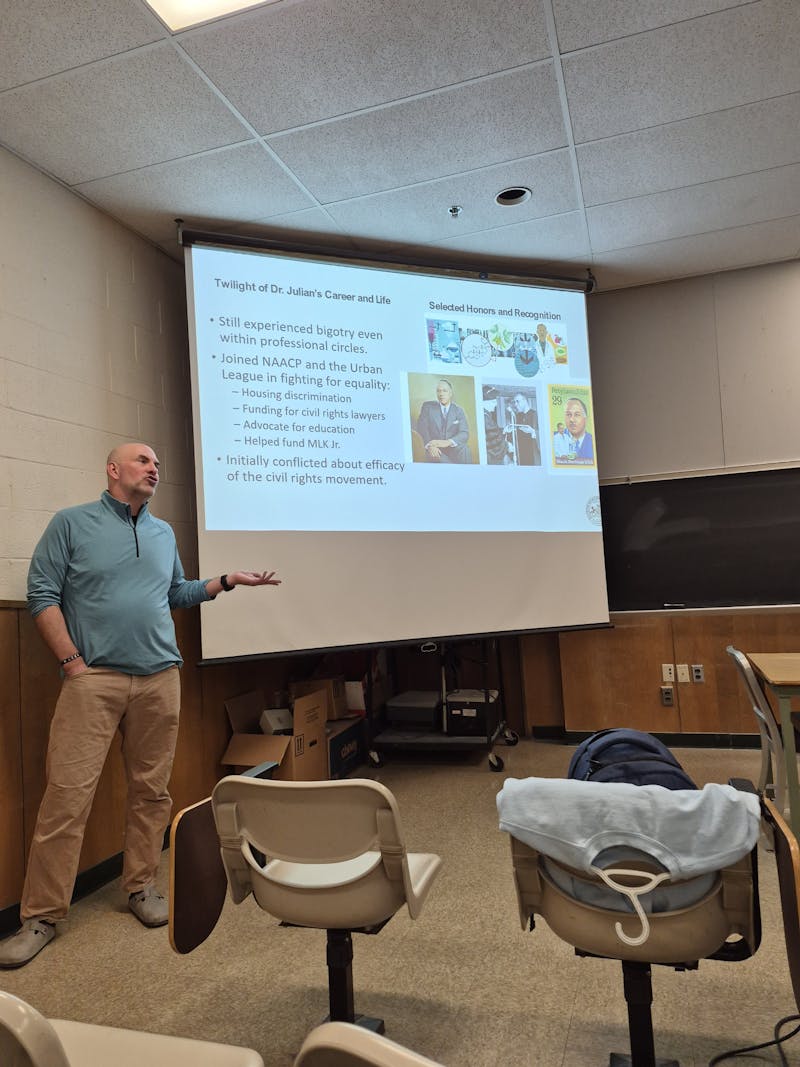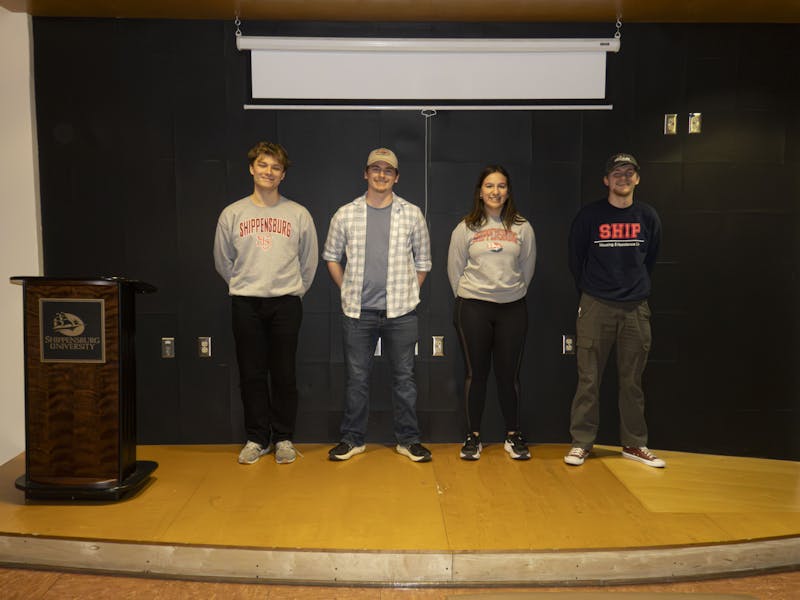It feels like every other week I discuss transparency in this column. It is not a matter of obsession or a matter of blowing matters out of proportion. Quite the contrary: Everywhere in our modern world, there are issues of clarity and straightforwardness with our political and professional conduct.
For the past two weeks, the front page of The Slate has shown news about Daniel "Chancellor Dan" Greenstein, the Pennsylvania State System of Higher Education Chancellor.
The words vague and convoluted strike me as oxymoronic, but they are best used to describe how this system redesign has been presented to the people it is intended to serve.
During Greenstein’s fall presentation, professors questions for clarification on what is actually happening in the PASSHE redesign, went unanswered as Greenstein struggled to break down the process in a way everyone could understand. Meanwhile, he emphasized the urgency of changes he wanted to make.
The issue of communication has only worsened this spring, when Greenstein sent directives, complete with goals and deadlines, to all PASSHE school presidents to help alleviate fiscal problems the state system is experiencing. To some, he presented these directives as “mandates” yet to others he said they were “suggestions.”
As you may have read on A2, Kara Laskowski, SU’s chapter president of Association of Pennsylvania State College and University Faculties, asked Greenstein for consistency.
In response, Greenstein cited a subjectivist’s approach to literary theory where the reader can bring their own interpretation to an author’s work. This is acceptable in an introductory English course where you can argue if Charlotte Perkins Gilman’s “The Yellow Wallpaper” is about mental health stigmas or entrenched misogyny. Not when you are a political figurehead using different language to sway different groups.
Top-down approaches to administration rarely work. By rule of thumb, different people in different places at different times have different needs that must be observed and accommodated when finding solutions to problems. This is why local administrations — and PASSHE school administrations, for example — need to wield power to deal with the financial burdens in ways that work for them, not for PASSHE or for Greenstein.
The worst part about the PASSHE System Redesign, however, is how SU’s student body has been sequestered — set apart from the discussions. To a degree, one can admire an effort on the part of the adults at this university to keep students removed, just as a parent might not want a young child to worry about a sick family pet. However, at the same time, these conversations impact students the most. The universities do not serve PASSHE, or President Laurie Carter, or Greenstein. They serve the students.
What I have seen is a complete lack of student involvement at Greenstein’s forums. Some of this can be chalked up to student apathy, but part of this is a lack of invitation and accessibility to these forums.
Last Thursday, Greenstein spoke to a crowd of mostly faculty and staff in Old Main Chapel from 11 a.m.-12:15 p.m. This is a time many students and professors have regularly scheduled classes, and as a result many were unable to attend the forum. Additionally, the student body at large received no formal invitation to the forum. Students who had heard about the forum second-hand had no clue if they could come share their perspectives, and students who did not hear will have had no chance to weigh in their perspectives. Think about the message that sends.
Mind you, Greenstein did meet with members of SU’s Student Government Association that afternoon. But the student body should have been encouraged (and permitted, if they were not) to attend Greenstein’s forum.
Greenstein is attempting to pitch a massive and speedy overhaul to PASSHE schools without dwelling on the details. And it seems whenever members of the faculty try to pin him down on the details, he skirts around their questions with convoluted language. The goal should be to explain the PASSHE redesign so a middle-schooler could understand it, not in a way that confuses and worries well-educated adults.
Finally, it seems as if Greenstein is focusing on selling his plans to the people who will make or break his implementation, and not necessarily the people who will be impacted the most by the “tough decisions that need to be made right now this minute.”
"Your World Today" is a weekly column written by the editor-in-chief of The Slate. It represents solely the subjective opinion of the individual who wrote it. For Staff Editorial opinions, see this week's "The Slate Speaks."




The Slate welcomes thoughtful discussion on all of our stories, but please keep comments civil and on-topic. Read our full guidelines here.